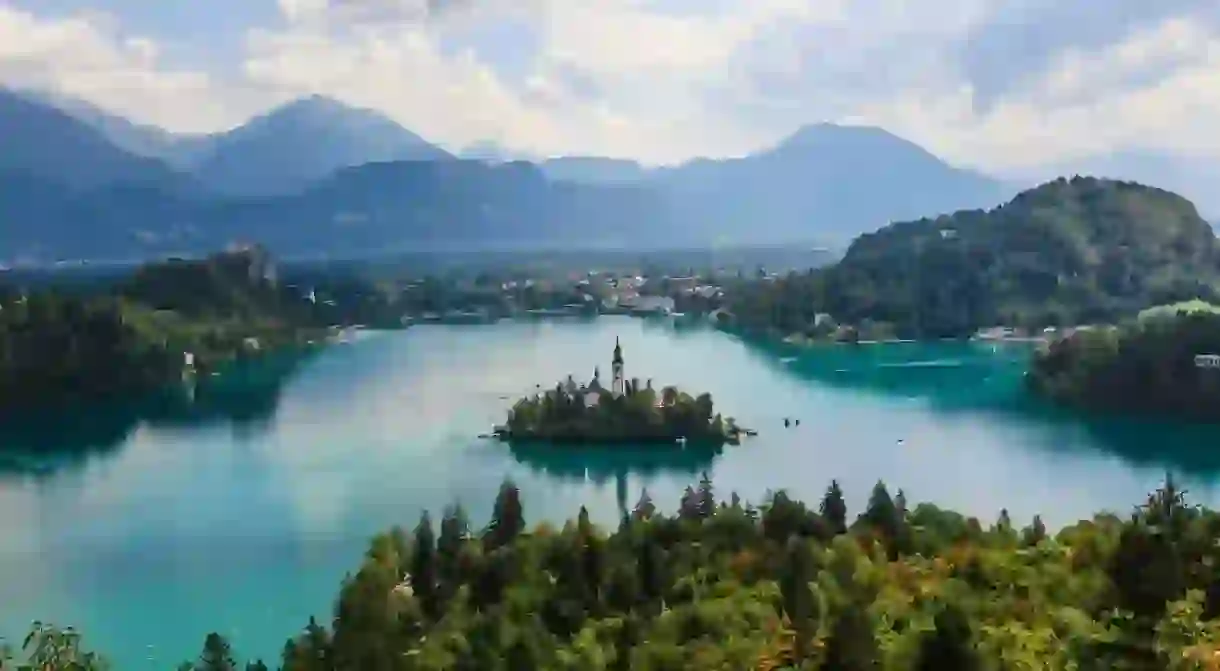How Slovenia is Leading the Way on Green Tourism

As the only country in Europe where four distinct geographical regions meet, Slovenia’s diverse landscape is a major attraction for many visitors. Surrounded by rivers, forests and mountains, Slovenians have always had respect for the natural resources they live off – and now visitors to the country can also experience the best of Slovenia in a truly sustainable way.
Ljubljana, the capital of Slovenia, is a popular holiday destination with a number of must-see attractions that rank among some of the best in Europe. Like other cities that have seen high levels of tourism, however, there is a worry that large crowds are causing damage to the ancient sites within the walls of Ljublana. The good news for Slovenia is that the rest of the country is perfectly set up for sustainable stays, and this focus on green tourism is a big part of how the country is promoting itself.
As part of Culture Trip’s focus on responsible travel, here’s a look at how one country has been leading the way on green tourism.
Slovenia’s Green Credentials
In 2015, Slovenia introduced a national programme for the development of sustainable and responsible tourism through a five-tier certification programme. Designed to implement green policies, and create and promote green experiences, the Slovenia Green model now offers over 100 ways to visit the country in a more sustainable manner.
From national parks and accommodation to attractions and restaurants, future plans include the elimination of single-use plastics, the development of Slovenia’s Unique Experience (SUE’s) and introducing a new Slovenia Green cuisine label. Sitting between the Alps, the Mediterranean Sea, the Karst and the Pannonian, Slovenia was officially recognised as the first Green Country in the world, according to the Green Destinations Standard.

Green Experiences in Slovenia
There are 46 landscape, regional and nature parks to explore in Slovenia – including Triglav National Park, which covers 4 percent of the country and is one of the largest parks in Europe. The country is known for its many lakes and rivers, with Lake Bled – situated in the foothills of the Julian Alps – the best known amongst them.
Travel through the country is encouraged by train, bike or on foot. In 2021, six new trails were launched, including the Juliana Loop Biking Trail and the Krokar Primeval Forest Hiking Trail.
The country was crowned European Region of Gastronomy in 2021, having made a point of creating sustainable dishes, and using short supply chains and local ingredients. Slovenia also has the largest number of beekeepers per capita than anywhere else in Europe, so expect to find plenty of cuisine enriched by local honey.

Environmentally Friendly Attractions in Slovenia
Triglav National Park is home to the tallest mountain in Slovenia. The Triglav is also the highest peak of the Julian Alps, a range that stretches from northeastern Italy to northwest Slovenia. The park is great for hikers and kayakers, with the calm waters even allowing the more adventurous visitor the chance to take to the air for a spot of parasailing.
Over at Lake Bohinj you can also get an elevated view, but this time in a far more sedate way. A cable car system can take you to the top of Mount Vogel, which in turn looks over a series of unspoiled meadows and forests.

Considered one of the most beautiful glacial valleys in Europe, Logar lies within the northern part of Slovenia and is full of historic and cultural value. In the summer, visitors can hike, bike or climb, stopping at local farms to try local delicacies such as stomach sausage and dried pear dough pockets. Famous for its waterfalls, the 90m-high (295ft) Rinka Falls is a must see.
Places to stay in Slovenia
Bohinj Eco Hotel
Eco Hotel

An award-winning sustainable hotel in the heart of Slovenia’s Bohinjska Bistrica, Bohinj Eco Hotel is at the edge of Triglav National Park. The comfortable, modern interior is decorated using local natural materials while offering guests panoramic views of the Julian Alps. On the hotel’s top floor, the exclusive wellness area offers a wide range of relaxing facilities and treatments.
Sunrose 7 Hotel
Suite Hotel

This landmark Slovenian heritage hotel and digital detox hideaway has been welcoming guests since 1890. Back then, the digital detox element wasn’t high on the agenda, but today the 18 rooms and suites – where traditional Slovenian architecture meets contemporary minimalist alpine design – are great for a complete off-the-grid experience. Sunrose 7’s new wellness area is called Zlata Vila (or Golden Fairy) and focuses on seven elements of relaxation.
Hotel Ljubljana Park
Bed and Breakfast

Surrounded by several parks, this hotel is the most urban and green hotel in the centre of the capital. Committed to sustainable development, respecting the environment and connecting with local communities, rooms are decorated with ecofriendly materials and guests are offered optional room cleaning. The hotel rooftop is a great urban space, which is home to a herbal garden and even a series of beehives.
Eco Campsite Koren
Camping

Located next to the emerald Soča River and only 500m (1,640ft) from Kobarid, Eco Campsite Koren is the first eco-camp in Slovenia. Providing 90 plots for trailers, motorhomes and tents, the site has a maximum capacity to house 360 people. It’s a perfect base for active travellers, including kayakers, rafters, mountaineers, paragliders, anglers and cyclists.













